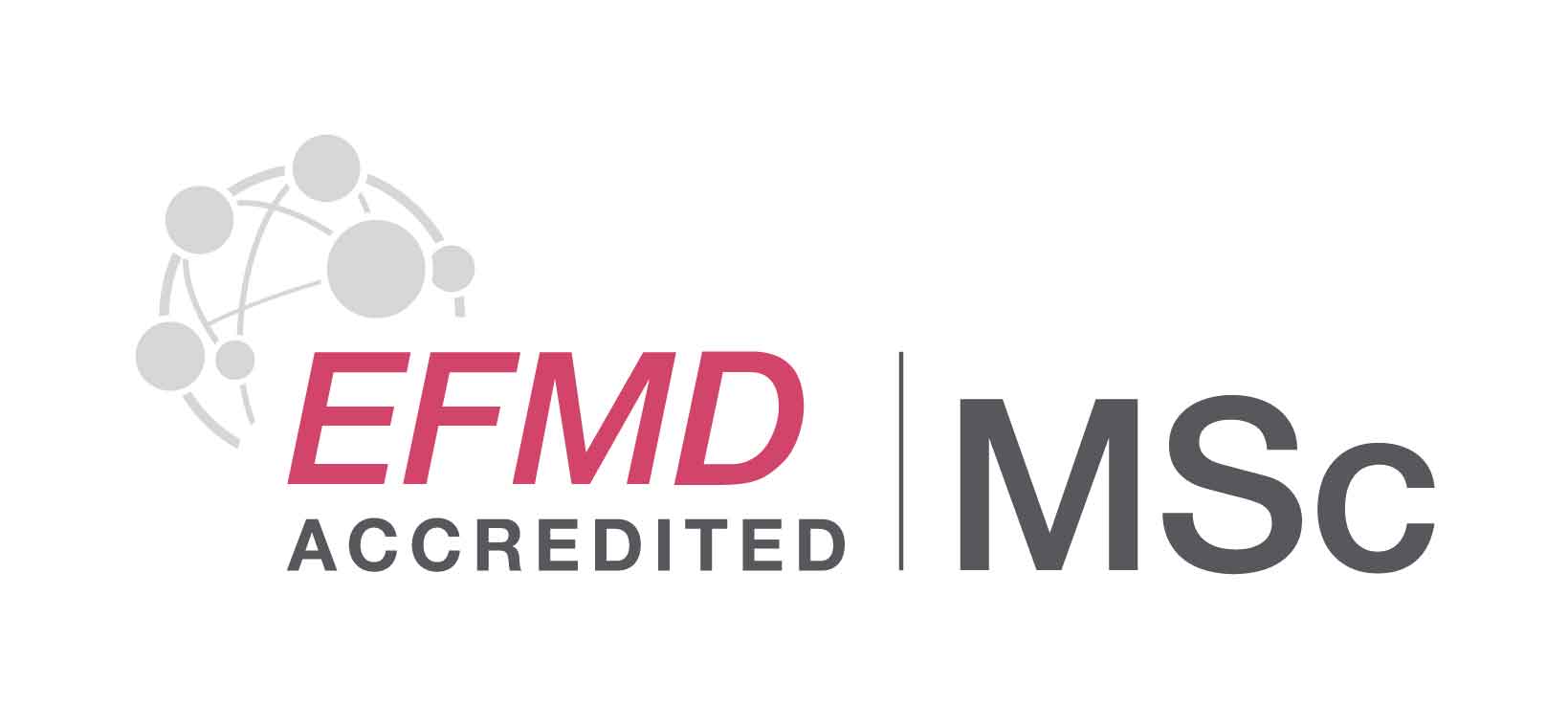
Accounting and Finance
Full-time
Part-time
One year
Two year
September 2026
In a nutshell
International applicants: please check the international intakes page for the latest information and application dates.
Understanding and managing a business's money is essential for its success. Good accounting skills and financial management experience are highly valued and can lead to a rewarding career.
Our Accounting and Finance postgraduate degree is designed for graduates starting their careers, professionals looking to advance or those preparing for professional exams. The programme is practical and future-focused, covering various important concepts and practices and the technology that supports them. You'll also learn how these aspects fit into managing global organisations.
- Study a practical course, learning from industry experts.
- Work with the appropriate tools of analysis to understand the basic mechanics of banks’ financial instruments.
- Develop your knowledge and technical skills of financial reporting.
- Examine the most important issues in corporate finance.
- Learn advanced management accounting techniques for decision-making.
The programme is accredited by the Chartered Institute of Management Accountants (CIMA). If you complete the course and pass the CIMA case study exam, you can claim exemptions from 11 of the CIMA exams, leaving only 4 to complete. The programme is also accredited by EFMD, a leading international quality assessment system for business programmes. These accreditations ensure the course is of high quality.
Why Salford Business School?
Situated at the heart of Greater Manchester's business, finance and digital sector, Salford Business School is perfectly placed as a dynamic hub for the development and exchange of knowledge.
We combine cutting-edge learning with strong industry connections, preparing you to lead change in the fast-paced world of business and management.
Find out more about our school and community.
To find out more, register for a Postgraduate Open Days or learn more about our master's courses in business, finance and law.
options available
students accepted
This is for you if...
You have a degree in accounting, finance or similar and want to consolidate your knowledge and skills before entering the profession.
You work in accounting or finance and are looking to progress into a senior management role.
You are looking to expand your knowledge prior to setting out on the path of professional exams.
All about the course
The course is delivered across three trimesters. The first two consist of 13 weeks each, with a total of 11 hours of teaching in each week. This is made up of eight hours in class plus two hours for Research Skills and one hour of Supporting Student Success.
The final trimester is dedicated to your dissertation. The dissertation module accounts for the final 60 credits of your degree, and gives you the opportunity to put your learning into practice. You will be allocated a supervisor who will mentor you through the dissertation.
You'll also undertake independent study with online support through the University’s virtual learning environment, Blackboard.
This information relates to the full-time option. For further detail about our part-time opportunity, please get in touch.
Financial Accounting
This module will develop your knowledge and technical skills of financial reporting to new levels. You will get the skills needed to confidently voice the language of business and clarify reports to a wide variety of stakeholders. You will learn to make strategic business reporting decisions within the corporate environment; to test concepts, theories, principles; and crucially to apply this knowledge to real life scenarios.
You will be studying in an ethical environment so will apply your professional judgment and ethical principles to ethical dilemmas and discuss the consequences of unethical behaviour. You will be encouraged to draw upon and share their diverse cultural and managerial experiences.
Teaching will consist of interactive lectures and seminars, small group learning sets, class-based activities, research articles and web-based materials. You will be assessed through an exam (75% of the grade) and a data analysis project (25%).
Corporate Finance
The primary goal of this module is to provide an integrated overview of the most important issues in corporate finance from the point of view of a manager of a non-financial corporation in today's competitive environment. It provides a starting point for a successful career in finance.
During your studies, you will examine a range of topics including corporate organisation and governance; risk and return; corporate restructuring; and mergers and acquisitions. Your learning will be based on corporate financial management strategies in an international world.
You will be encouraged to draw upon and share your own cultural and managerial experiences.
Teaching:
- Interactive lectures and seminars
- Small group learning sets will be used as the basis for problem-based learning scenarios designed to include case studies, class-based activities, research articles and web-based materials
- Guided personal study supported by associated reading list, lecture notes and relevant research articles
Assessments:
25% Group case study report
75% Exam
Management Accounting
The module will equip you with advanced management accounting techniques for decision-making, planning, control and performance measurements. The concept of costs is discussed and how different costing systems can be used for different purposes with implications on decision-making, calculating full-production cost, price setting and budgeting. You will also look at account and control for inventory based on different methods. The importance of performance measurement and how this can be implemented is discussed. This module also equips you with capital investment appraisal methods with particular focus on environmental implications.
Teaching:
- Lectures to introduce methods and techniques
- Seminars to develop and extend learning
- Student-led discussion of study material and solutions to exercises and case studies
- Guided personal study supported by associated reading list, lecture notes and relevant research articles
Assessments:
25% Technical case study
75% Exam
You will then choose two of the following 15-credit elective modules.
Corporate Governance and Ethics
The global financial crisis that started in 2007 increased the urgency of the search for a better ethical framework and governance for business. An increase in the range, significance and impact of corporate social and environmental initiatives in recent years suggests the growing materiality of a more ethically informed approach. There are increasing indications of large corporations taking their ethics and corporate governance responsibilities more seriously, and of these issues becoming more critical in the business agenda.
This module will thus give you the opportunity to explore issues in corporate governance and ethics and the important role of the board of directors in improving governance and in embedding a more ethical approach in organisations.
Teaching:
- Lectures to communicate key knowledge of corporate governance concepts
- Seminars to explore and apply this knowledge to real corporate governance contexts.
- Case studies, practical exercises, ethics vignettes and guest speakers and/ or study visits
- Guided personal study supported by associated reading list, lecture notes and relevant research articles
Assessments:
100% Individual essay
FinTech
This module looks at the latest developments in the area of Financial Technology. It starts by discussing the nature of blockchains and the innovation in financial services that are likely to take place in the coming years. It then examines the importance of modern cryptography and explores cryptocurrencies such as Bitcoins and how they are mined. This module makes use of real-world examples of how FinTech is already having an impact on the way the financial services are affected. Finally, it looks at examples of how different countries have reacted to the use of cryptocurrencies through government press releases.
Teaching:
- Interactive lectures and seminars
- Small group learning sets will be used as the basis for problem-based learning scenarios designed to include case studies, class-based activities, research articles and web-based materials
- Guided personal study supported by associated reading list, lecture notes and relevant research articles
Assessments:
100% Individual report
International Finance
The module will enable you to devise ways of protecting a business from international risk. This will firstly include an understanding of the importance of exchange rates in assessing international interest and inflation rates and their effect on international trade; secondly, the role of derivative instruments and their application to hedging strategies to insure against excessive price volatility including the use of options, futures and swaps; thirdly, international risk reduction through structuring a business, invoicing policy and cash management. Finally, the module examines macro issues including crises, country risk analysis, theories of international trade and the balance of payments.
Teaching:
- Interactive lectures and seminars
- Small group learning sets will be used as the basis for problem-based learning scenarios designed to include case studies, class-based activities, research articles and web-based materials
- Guided personal study supported by associated reading list, lecture notes and relevant research articles
Assessments:
100% Data analysis report
Banking and Financial Regulation
Banks play a major part in funding companies and by extension in economic development. Their increasing importance has led to regulation on an international level that affects all banking operations both large and small throughout the world. These major developments over the last 20 years make banking a fundamental part of understanding finance and the nature of the regulatory regime. You will have the opportunity to evaluate the performance of a bank as well as to analyse loan data and assess loan products. This allows you to appreciate the problems of lending, issues that are fundamental to all businesses.
You will look at the macro banking environment, study bank regulation and analysis, consider how bank management helps you to manage risk and learn about current issues in banking such as money laundering and internet banking.
Teaching:
- Interactive lectures and seminars
- Student activities and discussions
- Guided personal study supported by additional reading list, lecture notes and relevant research articles
Assessments:
100% Individual assessment
Dissertation
This module aims to enable you to evaluate research methodologies, develop critiques, interpret knowledge and, where appropriate, propose new hypotheses. To develop in your qualities and transferable skills required for employment or further research e.g. initiative, conceptual, and analytical thinking competencies, as well independence and interpersonal awareness in complex and unfamiliar situations. This module will cover both qualitative and quantitative research methods.
In the first two trimesters, you will attend weekly classes to develop your qualitative and quantitative research skills. In the final trimester, you will undertake research on a topic of your choice using the skills and knowledge learned during the programme.
You will be supported by a subject specialist.
Placement
The Placement is your opportunity to consolidate your learning by engaging with key theories and concepts associated with your programme of study to produce written work that demonstrates your depth of knowledge and originality in approach and content
In the first two trimesters, you will attend weekly classes to develop your qualitative and quantitative research skills. In the final trimester, you will complete a six-month paid placement with a client on a project relevant to the programme of study. At the end of the placement, you will submit a reflective report on the application of your skills within the placement.
Internship
The Internship is your opportunity to consolidate your learning by engaging with key theories and concepts associated with your programme of study to produce written work that demonstrates your depth of knowledge and originality in approach and content
In the first two trimesters, you will attend weekly classes to develop your qualitative and quantitative research skills. In the final trimester, you will complete a three-month internship (paid or unpaid) with a client on a project relevant to your programme of study. At the end of the internship, you will submit a reflective report on the application of your skills within the internship.
We take a flexible approach to our course delivery that promotes diversity and inclusivity and provides a blended learning experience, which will vary to meet specific programme requirements. This learning time includes formal lectures and interactive activities such as seminars, tutorials, practical sessions, laboratory and studio learning. Smaller classes may be used to support collaborative activities such as project and group work and presentations. A range of different assessments and feedback is offered to meet the needs of both our diverse student body and specific subject needs.
Our postgraduate taught courses are normally made up of 30 credit modules which are equal to 300 hours of learning time, or 15 credit modules which are equal to 150 hours of learning time. A Master’s degree typically comprises 180 credits, a PGDip 120 credits, and a PGCert 60 credits.
Please note that exact modules and content offered may vary in order to keep content current and, for courses that offer optional modules, may depend on the number of students selecting particular options. When accepting your offer of a place to study on a programme with optional modules, you should be aware that optional modules may not all run each year. Your tutor will be able to advise you as to the available options on or before the start of the programme. Whilst the University tries to ensure that you can undertake your preferred options, it cannot guarantee this.
FAQs
What are the benefits of studying MSc accounting and finance?
Accounting and Finance MSc graduates are highly sought after in many fields, including public accounting, corporate finance, banking and investment. Our MSc Accounting and Finance will provide you with the skills and knowledge required to significantly enhance your career prospects. You'll gain real-world experience and the latest financial knowledge from industry experts, providing a strong foundation for success in the sector.
What can I do with an MSc in accounting and finance?
Graduates with an MSc in Accounting and Finance can go on to have successful careers in a range of areas across the financial sector. The skills and knowledge they possess is highly sought after, and they have a wide range of career opportunities available to them.
What will I learn on an MSc accounting and finance?
On successfully finishing this programme, you will be equipped with the skills and understanding necessary to effectively and efficiently perform tasks in a managerial or consulting role in the financial sector. As well as your academic learning, you will develop your soft skills and learn to recognise good practice in the analysis, planning and management of international banking and finance products and services.
What about after uni?
This is an advanced degree in accounting and finance and can lead you to a wide range of career opportunities. You may secure a role as a finance director, new business development manager, treasury manager, financial controller, financial planning manager and more.
It also provides a thorough preparation for academic research in finance and corporate finance.
What you need to know
Applicant Profile
This programme is designed for graduates with an academic background in accounting, finance or economics. Alternatively, sufficient and suitable work experience within accounting or finance will also be considered.
The course is designed for those aspiring to work within accounting and finance and exposes you to a variety of operational and functional concepts and practices. This supports you to gain a greater appreciation of the operational, functional and global aspects of accounting and finance.
English Language Requirements
International applicants will be required to show a proficiency in English. An IELTS score of 6.0 (with no element below 5.5) is proof of this. If you need to improve your written and spoken English, you might be interested in our English language courses.
Find out about dedicated support for international applicants.
Undergraduate degree
A minimum 2:2 honours degree or equivalent in accounting, finance or similar subject. A wide range of professional qualifications are also accepted, either in partial or complete fulfilment of entry requirements.
International students
We accept qualifications from all around the world. Find your country to see a full list of entry requirements.
Accreditation of Prior Learning (APL)
We welcome applications from students who may not have formal/traditional entry criteria but who have relevant experience or the ability to pursue the course successfully.
The Accreditation of Prior Learning (APL) process could help you to make your work and life experience count. The APL process can be used for entry onto courses or to give you exemptions from parts of your course.
Two forms of APL may be used for entry: the Accreditation of Prior Certificated Learning (APCL) or the Accreditation of Prior Experiential Learning (APEL).
How much?
| Type of study | Year | Fees |
|---|---|---|
| Full-time home | 2025/26 | £8,550 per year |
| Full-time international | 2025/26 | £16,560 per year |
| Full-time home | 2026/27 | £8,820 per year |
| Full-time international | 2026/27 | £16,980 per year |
| Part-time | 2026/27 | Part time fees will be calculated on a pro rata basis |
Additional costs
You should also consider further costs which may include books, stationery, printing, binding and general subsistence on trips and visits. For more information please see our funding section.
International applicants
If you are applying from overseas and are accepted onto the programme with placement, there will be additional costs associated with visa extensions. These include:
- Extending your student visa fee (visit gov.uk for more information). Please note, this is in addition to your original student visa fee.
- Tier 4 biometrics enrolment fee.
- Immigration Health Surcharge 12 month fee (visit gov.uk for more information).
Visit Immigration and Visa FAQ and read the section on extending your Tier 4 visa for further information.
International scholarships
If you are a high-achieving international student, you may be eligible for one of our international scholarships.
All set? Let's apply!
Want to know more? Register for one of our Postgraduate Open Days or contact us:
By email: enquiries@salford.ac.uk
By phone: +44 (0)161 295 4545


